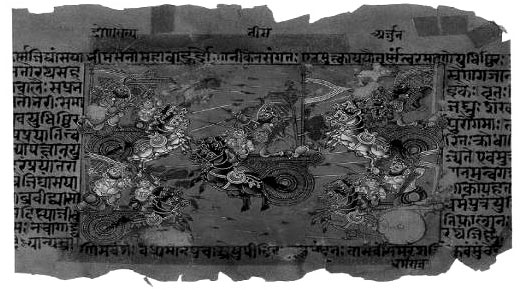
An assistant municipal commissioner in the Indian state of Maharashtra recently wrote a letter of complaint to the chief justice of Mumbai High Court, alleging he was disallowed from appearing as a witness at a lower court because he is an atheist and thus refused to take his oath upon the Bhagavad Gita. The text in question is a Hindu scripture that is part of the ancient epic Mahabharata and largely looked upon as religious content by believers. The complainant sought the High Court to order the concerned judge to record his statement irrespective of him refusing to take an oath upon the religious text.
In 2014, a team led by assistant municipal commissioner Sunil Bhalerao had captured a vehicle belonging to a particular political party in Mumbai and seized Rs 6 lakh from it. After the imposition of the revised code of conduct for elections, a case was registered against Ashok Mirchumal Thawani, the owner of the vehicle, at the local police station in Shanti Nagar. Bhalerao, who is the complainant, is also an important witness in the case.
Speaking to the media, Bhalerao said that last month the prosecution asked him to appear as a witness before the fifth court in Bhiwandi. Upon stepping into the witness box, Judge D P Kale asked him for his name and profession before directing him to take an oath upon the Bhagvad Gita that would reaffirm that all of Bhalerao’s statement would be based on truth and nothing else. Reportedly, Bhalerao informed the judge that he is an atheist and does not believe in any religion or God. He then went on to say he would swear on the Constitution of India, as he held that in high regard and not the Bhagavad Gita.
“The judge told me that as per law I have to take the oath on the Gita and I do not have any option. I informed the judge that in the past I was allowed to take the oath on the Constitution of India by a Thane sessions judge in another case,” said Bhalerao, who is a qualified lawyer and academician from Mumbai University. “I have also read the Constitution of India and as per Article 25 of the Constitution, every person is allowed to practice his religion, but I am an atheist and I also have equal right to practice my opinion with regard to religion. I am the complainant in the case and my evidence would be important so I am waiting for some relief from the high court on the basis of my letter. If the situation arises, I will file a PIL.”
Photo Credits: Wikimedia
